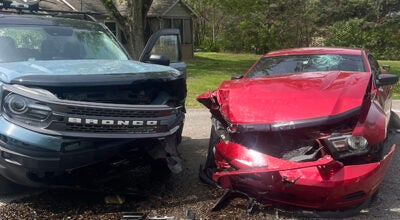Health department offers tips for cooling off in dangerously hot weather
Published 10:42 pm Tuesday, July 19, 2011
With the heat advisories issued and the excessive heat watch for later this week, officials with the Berrien County Health Department, The Berrien County Office of Emergency Management and the Berrien Chapter of the American Red Cross are urging residents to take precautions this summer to make sure they keep cool and safe.
Excessive heat can cause health problems, including heat exhaustion and heat stroke. Very hot days, with temperatures in the upper 80s and above, can cause body temperature to rise, possibly resulting in muscle cramps, dizziness and even death. Heat illness can occur when one’s body cannot cool down.
The body normally cools down by sweating. During extremely hot weather, when sweating isn’t enough to cool the body, one can become overheated to the point of becoming ill.
While anyone can be affected by heat illness, certain groups are more vulnerable, including young children, elderly adults, people who are overweight, people with medical conditions (diabetes, high blood pressure, heart problems, lung problems or mental illness), people who take certain medications for high blood pressure, and people who work in hot conditions.
The health department offers the following tips on how to avoid heat illness:
• The best way to avoid heat illness is to stay cool and hydrated. If you do not have air conditioning at home, find a public place to go for a few hours such as a mall or library. If you must stay home, take a cool shower or bath, and cover windows with curtains or shades to keep the sunlight from coming in.
• When going in the sun, wear light, loose-fitting clothing and use sunscreen. In any circumstances, make sure to drink enough water to stay hydrated. In extreme heat, avoid drinks that contain alcohol or lots of sugar, as they will not hydrate your body.
• Slow down. Strenuous activities should be reduced, eliminated or rescheduled to the coolest time of the day. Individuals at risk should stay in the coolest available place, not necessarily indoors.
• Dress for summer. Lightweight, light-colored clothing reflects heat and sunlight, and helps your body maintain normal temperatures.
• Put less fuel on your inner fires. Foods (like proteins) that increase metabolic heat production also increase water loss.
• Drink plenty of water or other non-alcohol fluids. Your body needs water to keep cool. Drink plenty of fluids even if you don’t feel thirsty. Avoid sweet drinks. High sugar content will dehydrate a person.
• Spend more time in air conditioned places. Air conditioning in homes and other buildings markedly reduces danger from the heat. If you cannot afford an air conditioner, spending some time each day (during hot weather) in an air conditioned environment affords some protection.
• Don’t get too much sun. Sunburn makes the job of heat dissipation that much more difficult.
• Prepare: Listen to local weather forecasts and stay aware of upcoming temperature changes.
• Most importantly, never leave children (or pets) in a parked car. Check up on elderly or otherwise vulnerable family and neighbors during hot days to make sure they are not suffering from heat illness.
For more information, contact the health department at 926-7121 or visit www.bchdmi.org.






